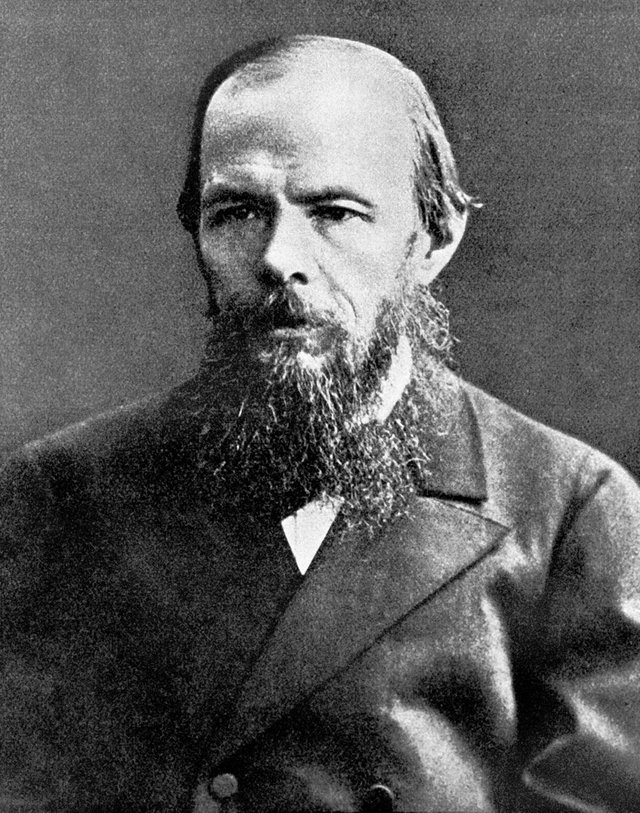What People Get Wrong about Freedom: Collectivism

Although we are living the most peaceful years in human history, the efforts we have made to achieve a peaceful and prosperous existence have on many occasions led to imminent disaster. Mainly because all action can be grounded and can be sustained on. It is not difficult to find a cause to defend some malicious action, it is not therefore difficult to find a kind of "good" after an evil action. A clear case is the collective life or the eagerness for a more collectively coerced society, a homogeneous mass to end. The people who always advocate this type of society have an irracinoal effort to impose an unobjectionable order, a unique way of thinking, to put an end to the existence of "evil egoism" (whichever is decisive).
Their advocates want everyone to coerce along with their ideals, and those who do not see it as a viable option will always have two options, either they join by force, or they are simply treated as the scornfulness of society. They always resort to promises to put an end to all the evils of societies, but, they never say the way to do it. Is it possible to eliminate the evil that we want to combat? And if possible, how could we not lead to undesirable consequences or create even worse damage?
In very militant societies, there are many people who are convinced that they have more and more powerful means at their disposal to subject everyone to their particular conceptions of the Good, to their respective absolutes. States grow, and this satisfies the ambitions of all politicians, precisely to the extent that they provide themselves with the means to moralize existence, at their whim, and in this incessant campaign they link immense multitudes that unthinkingly embrace the idea that by preventing the realization of any kind of evil a definitive, indisputable advance is achieved, even at the price of limiting more and more the areas of freedom and its risks.
Dostoyevsky masterfully synthesized this situation in the scene of the Grand Inquisitor, a metaphor of limitless power which supposes that freedom is too unbearable a burden for all, especially when considering not the individual but society as a whole, an environment without which we cannot be human but which always tries to shrink with the benevolent purpose of protecting us from ourselves.
Dostoyevsky wrote precisely and correctly about submission, that invisible chain that gives us a kind of freedom infinitely less problematic than the real one, that tension, that can be unbearable for crowds, of not having absolute certainty about either good or evil. Political literature is full of testimonies of how this renunciation of personal freedom and critical thought, and how this has taken over the criteria of the majority and made possible totalitarian regimes, Nazism and barbarism and the disaster of so many more or less communist experiments all imposing a single thought that nullifies any kind of pluralism or idea contrary to what is believed.
Distrust in what others can do, and certainty in the goodness of what each one does is the breeding ground of that collective renunciation of freedom, of that willing acceptance of a submission that can only be growing. Thus these two bitter certainties expressed by the Great Inquisitor become a reality, and it is important to emphasize that when the panorama was written it was not even remotely comparable to the temporary one: that for human society nothing more incomprehensible and little understood than freedom exists and has never existed.
Today many prefer to submit to this kind of distorted freedom, they submit by being a distinguished agent of the program of submission, they believe that they have or play a relevant role in this sea of confusion, their egocentrism by being part of something big and significant clouds to see what is really happening. This explains the incredible passion that many put into forcing others to behave according to their peculiar idea of Good, ignoring something essential in Western tradition: that any good has no meaning if it is not done freely, that there is no freedom other than that of conscience.
Christians like St. Augustine discovered a kind of freedom that had no relation to politics, that was experienced as something that occurs in a struggle with oneself, and on the fringe of interaction with the rest of men.

In political philosophy there is hardly any room to consider that kind of radical freedom, to the extent that what seems to matter is mere negative freedom, the fact that I am not prevented from doing what I want to do. But there lies the problem where most people err, and it is precisely to the extent that my will can be manipulated, to the extent that I can be forced to do something by making me believe that it is what I want or desire. As Orwell said, freedom will become a mere illusion that will be fought against, even, in the name of science, of a universal determinism.
In this way, the vision that freedom consists in others being able to do things that I do not like will be meaningless, because moral progress will be understood as a process in which tastes must necessarily coincide with Good, with what everyone considers to be Good, and consequently, any discrepancy, any difference, any dissent, will be seen as a trap and a deception, as a betrayal.
Today we are at the zenith of prohibitionism apparently well justified, in the high tide of a society in which, with the excuse of protecting us and promoting supposedly indisputable goods, States, with the help of trade unions, seek to impose on us all kinds of forms of conduct that are much less indisputable than is supposed. We live in a society that claims to have exorcised guilt and responsibility, but that imposes a growing number of creeds and mandates that would make any casuist catechism pale in colour.
The great paradox is that society acts in the name of collective freedom, but it represses more and more the small liberties of each one, and, above all, it tries to radically eliminate any idea that there can be an ethics and a good that are to the margin of what is imposed by the State and the legislation, the idea that there can exist a free ethics that is not reduced to obeying the whims of the authority of the moment, that mortal preamble to live as if submission were the gift that characterizes the stay in Paradise.
 Posted from my blog with SteemPress : Here
Posted from my blog with SteemPress : Here 
Upvoted.
DISCLAIMER: Your post is upvoted based on curation algorithm configured to find good articles e.g. stories, arts, photography, health, etc. This is to reward you (authors) for sharing good content using the Steem platform especially newbies.
If you're a dolphin or whales, and wish not to be included in future selection, please let me know so I can exclude your account. And if you find the upvoted post is inappropriate, FLAG if you must. This will help a better selection of post.
Keep steeming good content.
@Yehey
Posted using https://Steeming.com condenser site.
Curated for #informationwar (by @commonlaw)
Our purpose is to encourage posts discussing Information War, Propaganda, Disinformation and other false narratives. We currently have over 8,000 Steem Power and 20+ people following the curation trail to support our mission.
Join our discord and chat with 200+ fellow Informationwar Activists.
Join our brand new reddit! and start sharing your Steemit posts directly to The_IW!
Connect with fellow Informationwar writers in our Roll Call! InformationWar - Contributing Writers/Supporters: Roll Call Pt 11
Ways you can help the @informationwar
Another thoughtful and insightful post.
So I’m going to take the role of the devil’s advocate here, and ask you what you concentrate your critique of the situation to ‘collectivism’ for?
The other extreme would be a society where the ‘law of the jungle’ rules, where the only morality is that of the mightiest and biggest with mightiest and biggest sword, a society built on fear and submission to the alpha.
I wonder at what point we stop critiquing ‘sides’, and begin to formulate integrated solutions.
Evolution doesn’t work on just competition, it also happens with cooperation. Sympathy and empathy set us on a different level to other species... we can help each other outside of personal gain or for fear of being apart from the collective.
Surely one can temper one’s personal freedom with the freedoms of all other individuals?
I love the way you think!